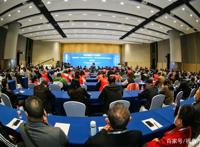子谦译文|第五类(代)创业教育理论:价值创造(25)
2023-06-03 来源:旧番剧
波尔坦斯基(Boltanski)和泰弗诺(Thévenot)开创了经济社会学价值分析的主要理论框架之一。这个框架由六个不同的价值“世界”组成。在“灵感的世界”中,诸如创造力、想象力和激情这样的品质是有价值的;在“工业世界”,重视的是生产力、可预测性和表现;“市场世界”崇尚竞争和理性,赞美对稀缺商品和自我利益的渴望;在“家庭世界”中,价值取决于等级制度,或者人与人之间的关系和他们相关的尊重程度;“名人世界”的价值在于通过“表现、明星和肤浅的外表”获得认可的人的数量。最后,“公民世界”涵盖了公平、民主和团结等集体利益价值观。这六个价值世界如下表1所示。Behavioral economics
行为经济学
Behavioral economics combines economics with other fields that empirically study human behavior—primarily psychology, but also other fields (Weber & Dawes, 2010). A pioneer in this field was Nobel laureate Herbert Simon, who modified the rationality assumption underlying neoclassical economics by stating that rationality is “bounded” (i.e. limited) by lack of information, limitations in human cognitive power and the presence of multiple and shifting personal wants (Simon, 2000). According to Simon (1993; 2005), humans respond to this by carefully listening to others’ advice, constantly learning in social settings and internalizing rules of thumb and heuristics that can be used for future decisions on which actions to take. This results in behavior that at times appears altruistic, i.e. helping others with no expected reciprocity, thereby deviating from the mainstream economic assumption of elf-optimizing behavior. Whether it is in fact altruistic, or rather a futureoriented, dynamic and “intelligent” form of subtle egoism is a question often discussed by scholars (Batson et al., 2008; Simon, 2005; Axelrod & Hamilton, 1981).
猜你喜欢
动漫推荐
免责声明:动漫番剧数据来源网络!本站不收费,无vip,请勿上当!
www.jiufanju.com-旧番剧

















